Dogeaters in the Diaspora: A Symposium
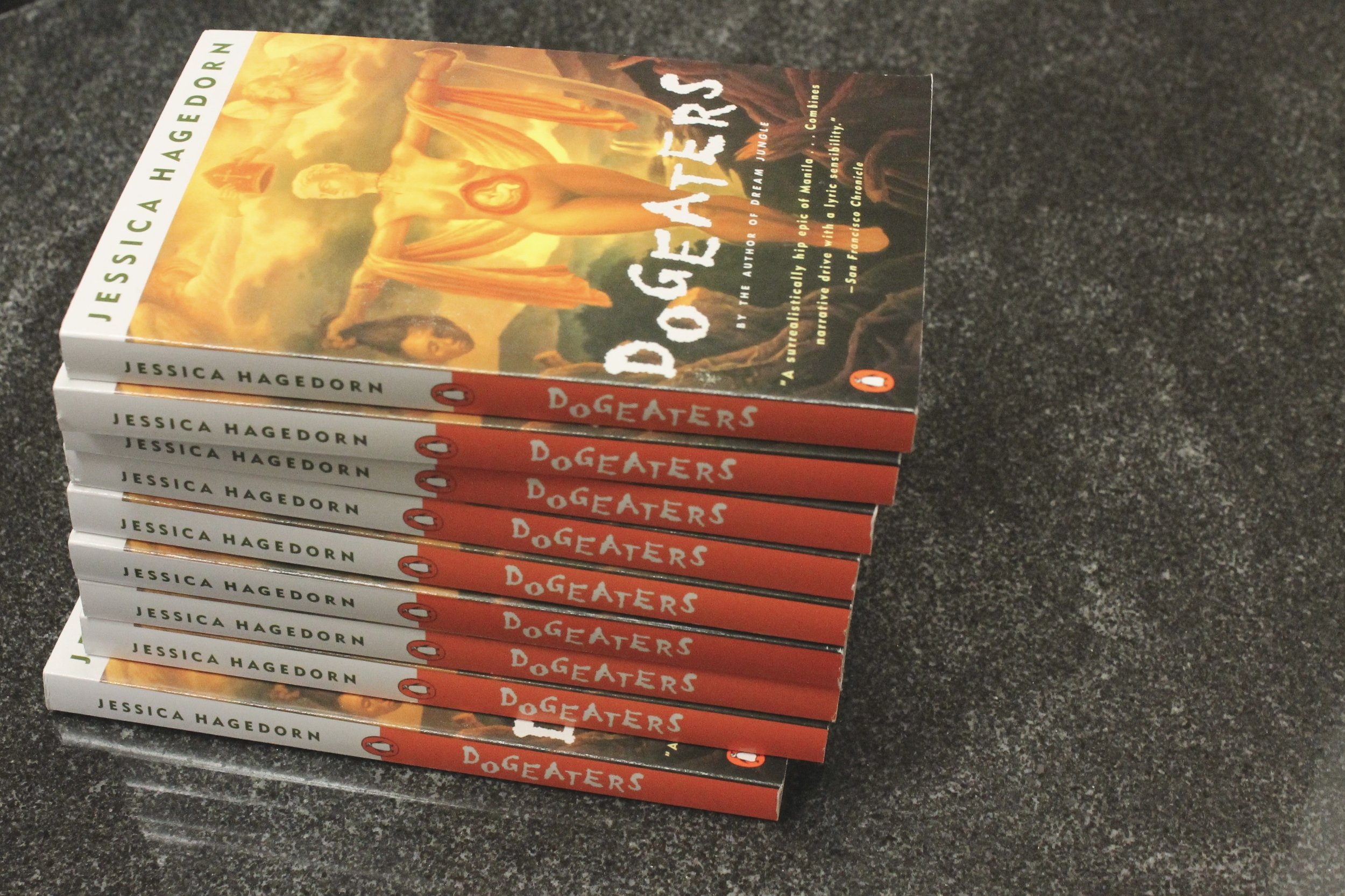
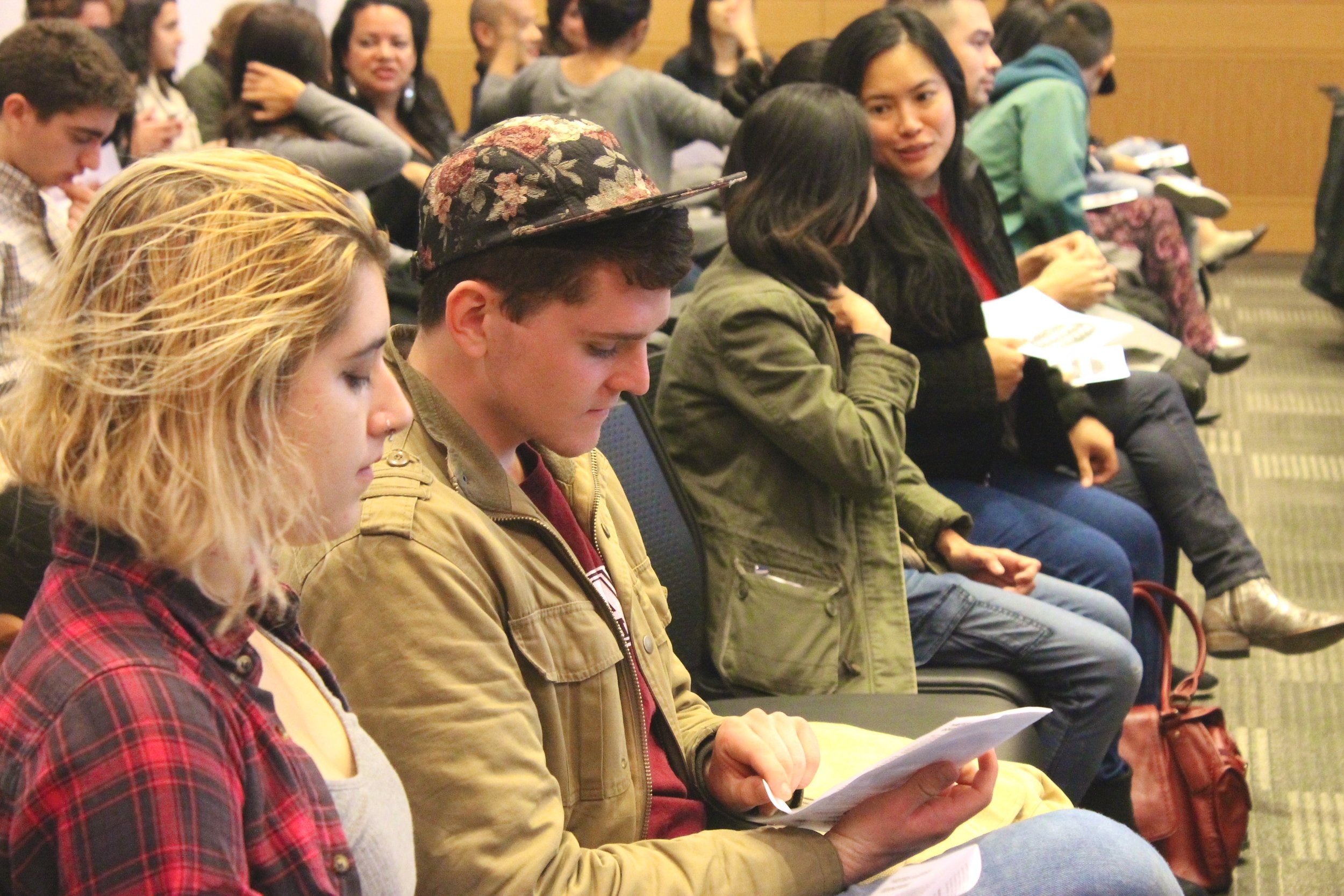
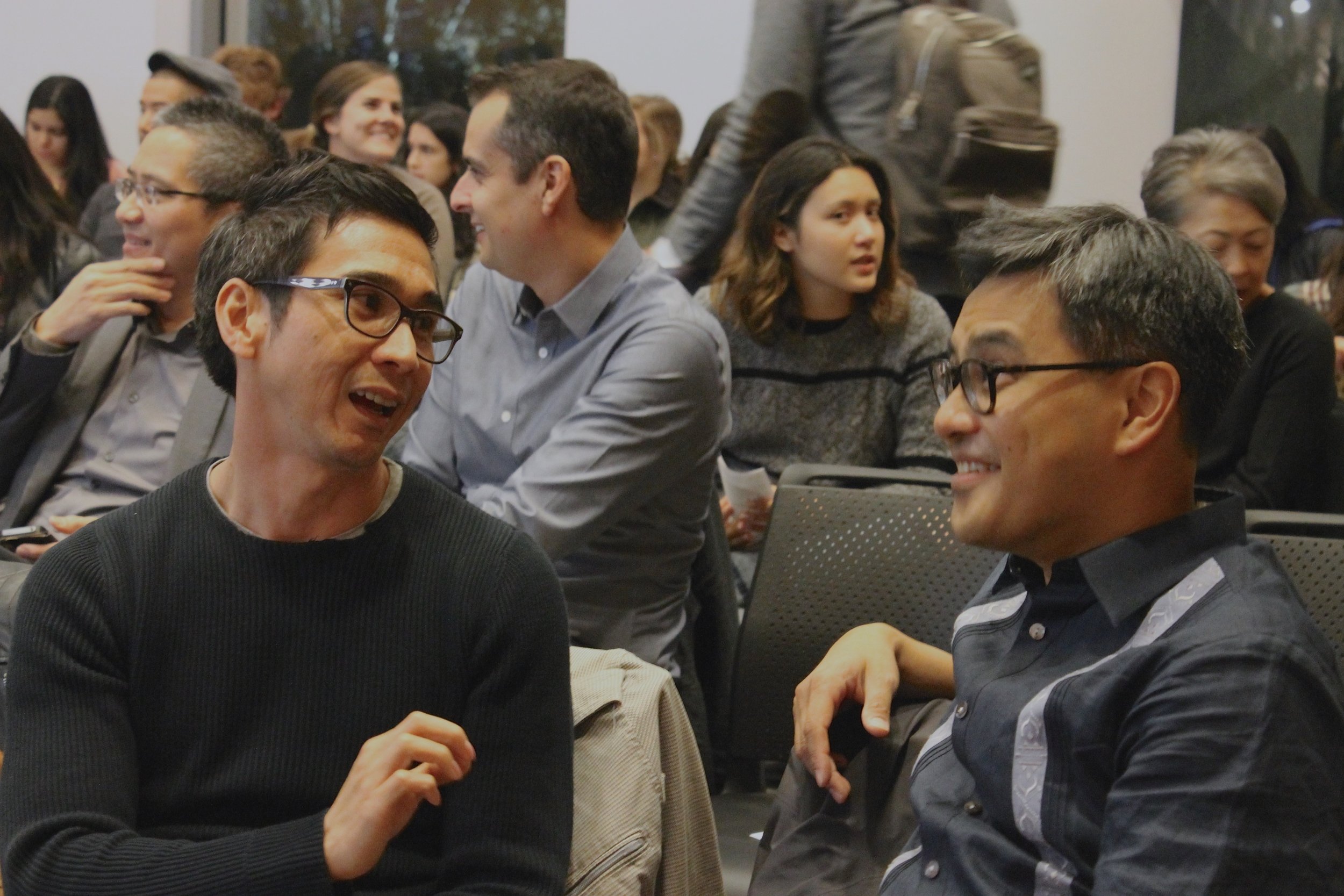
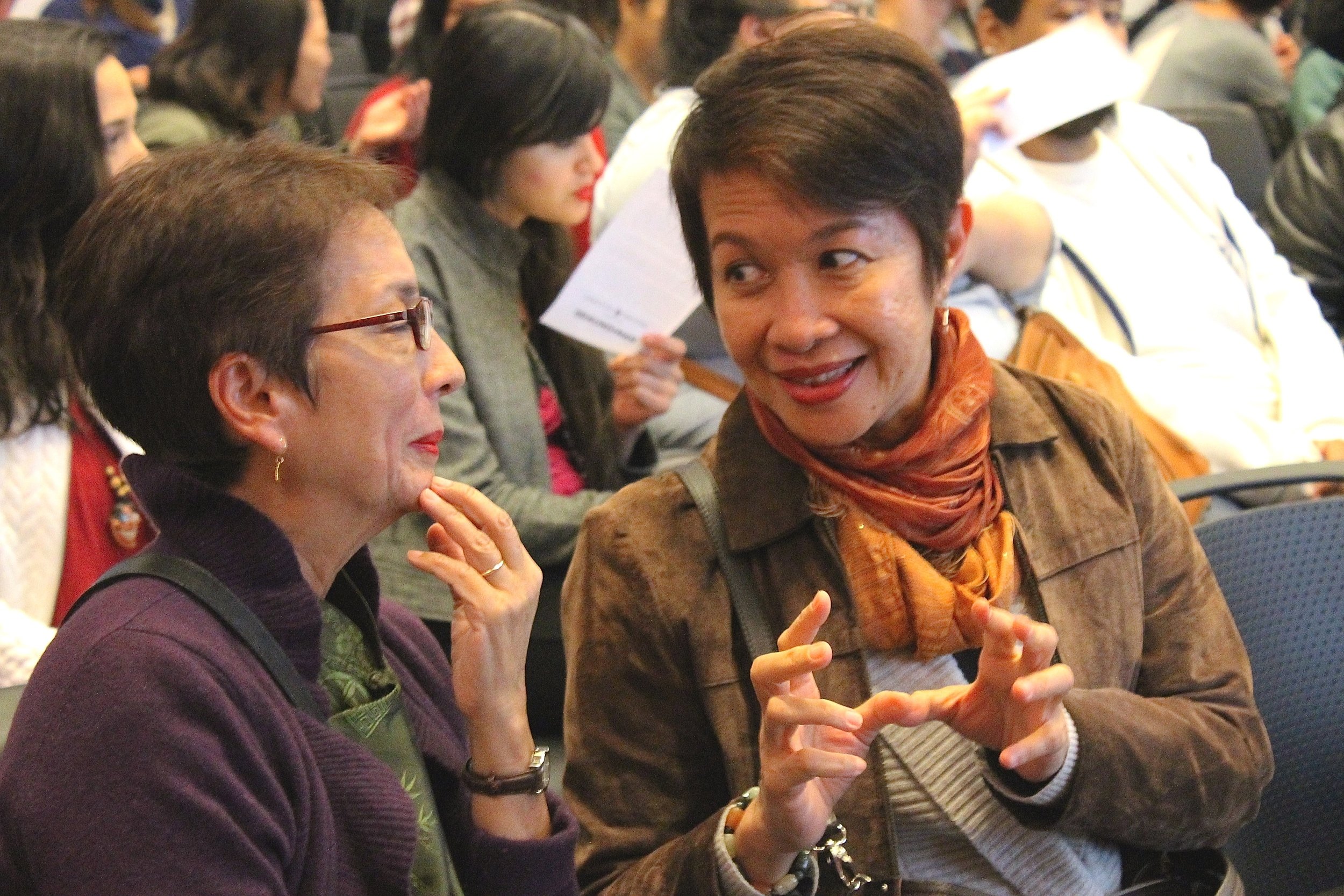
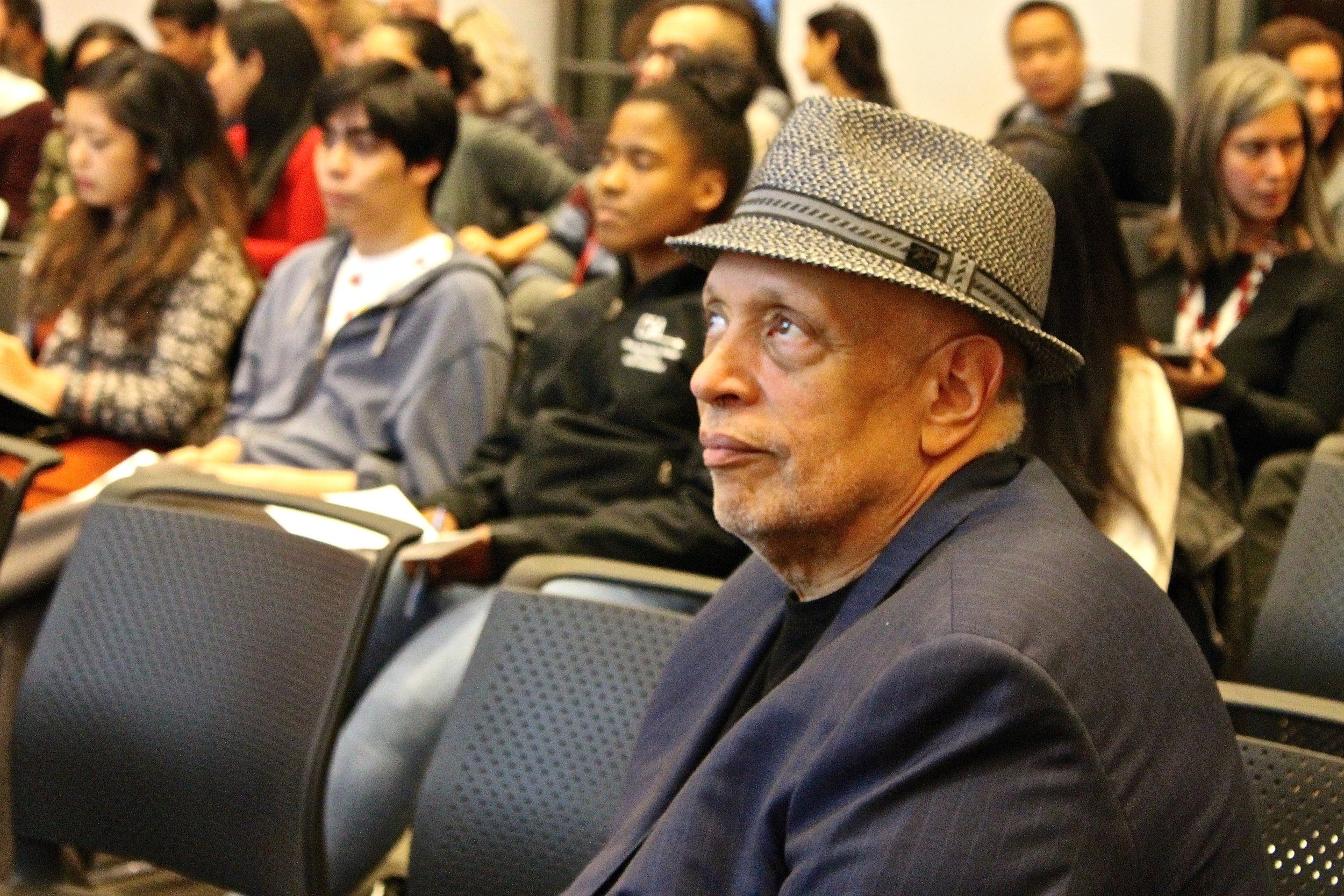
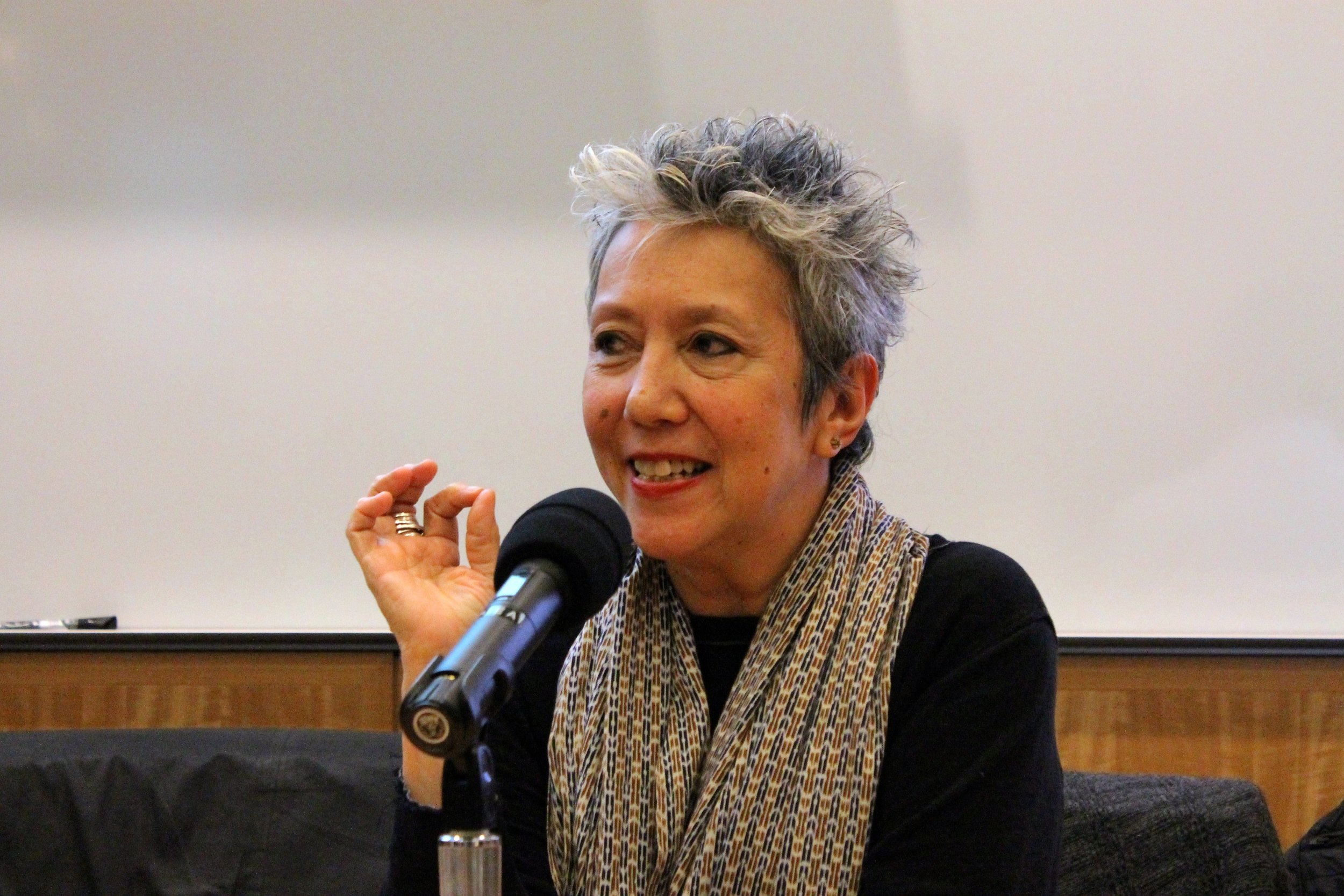
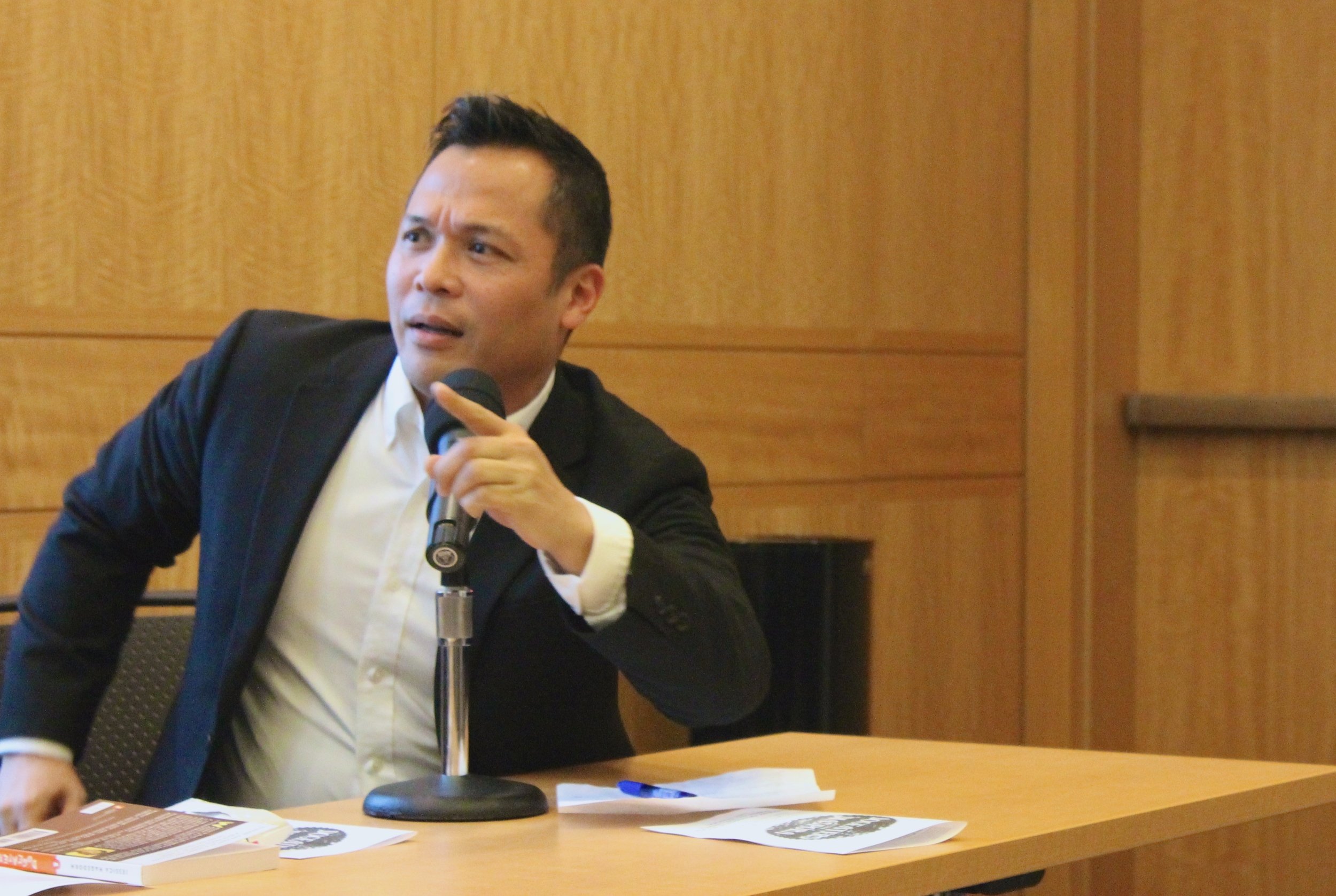
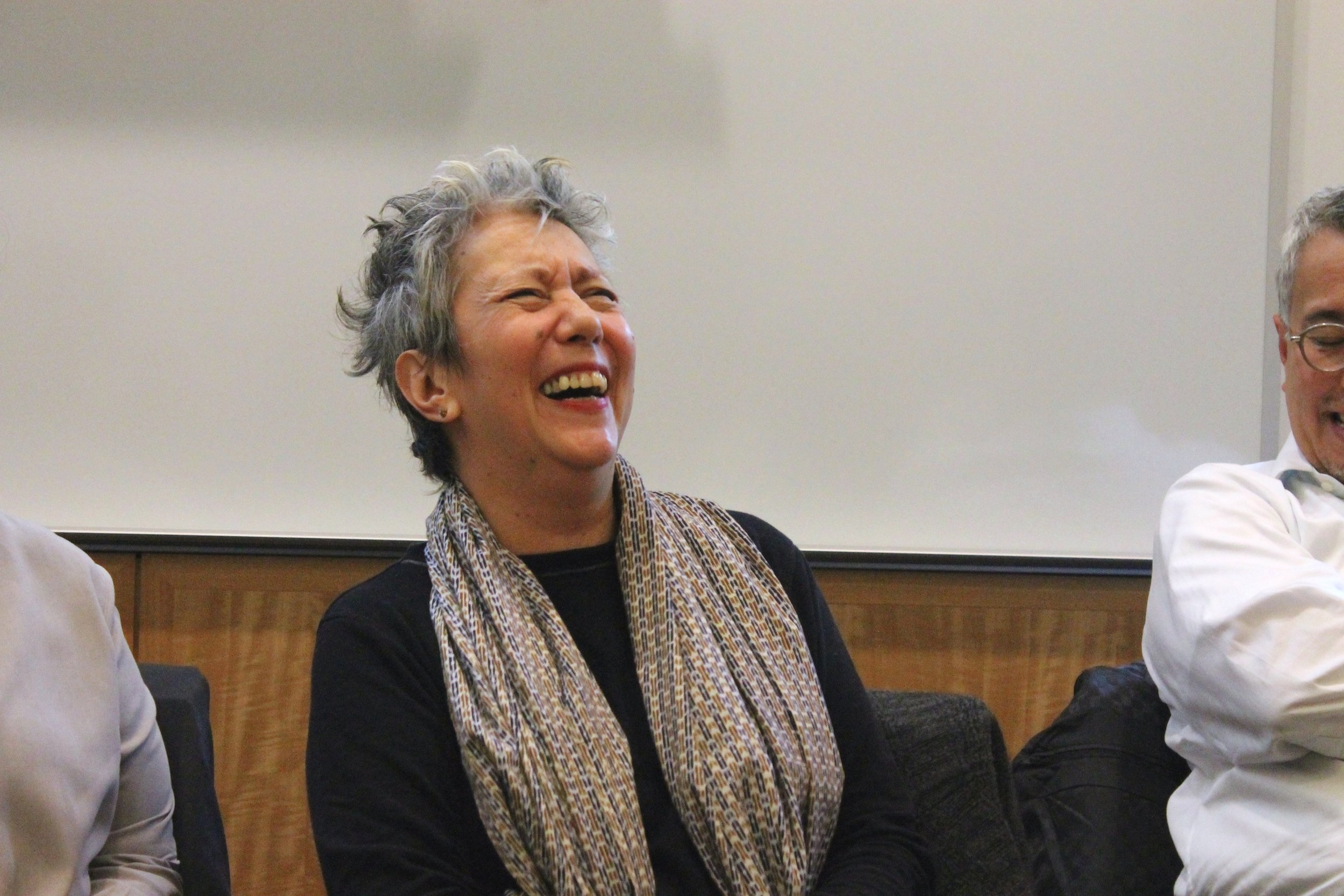
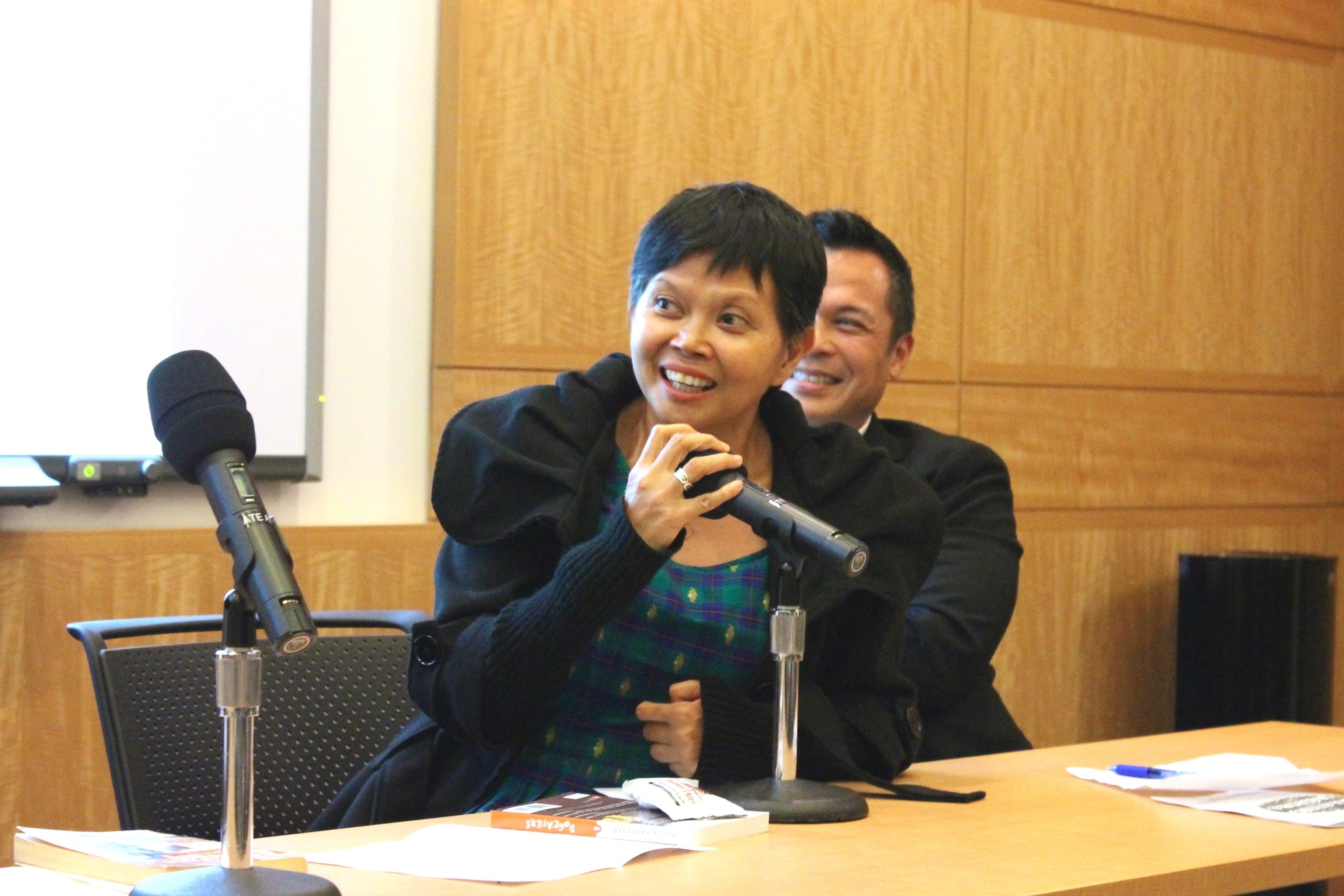
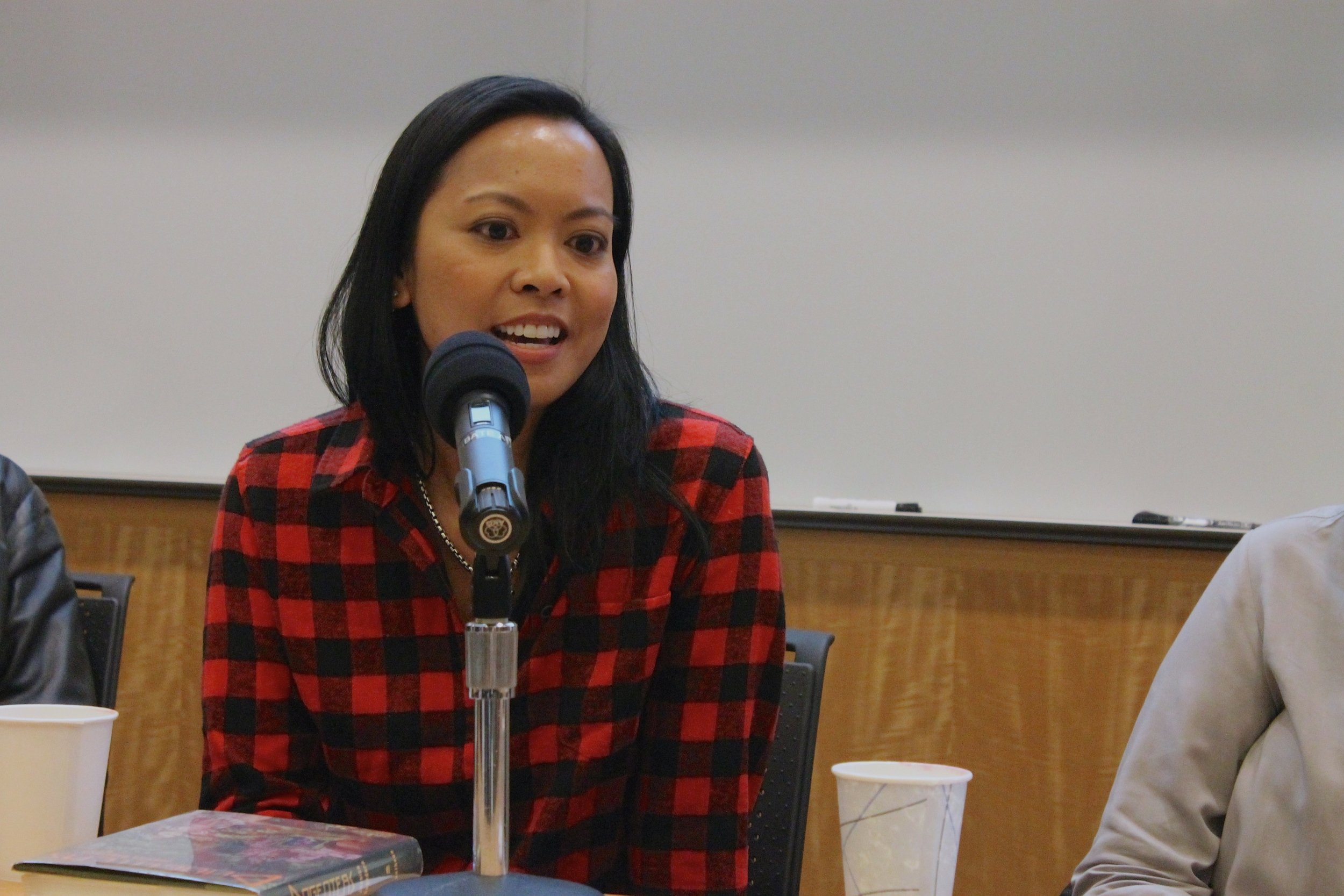
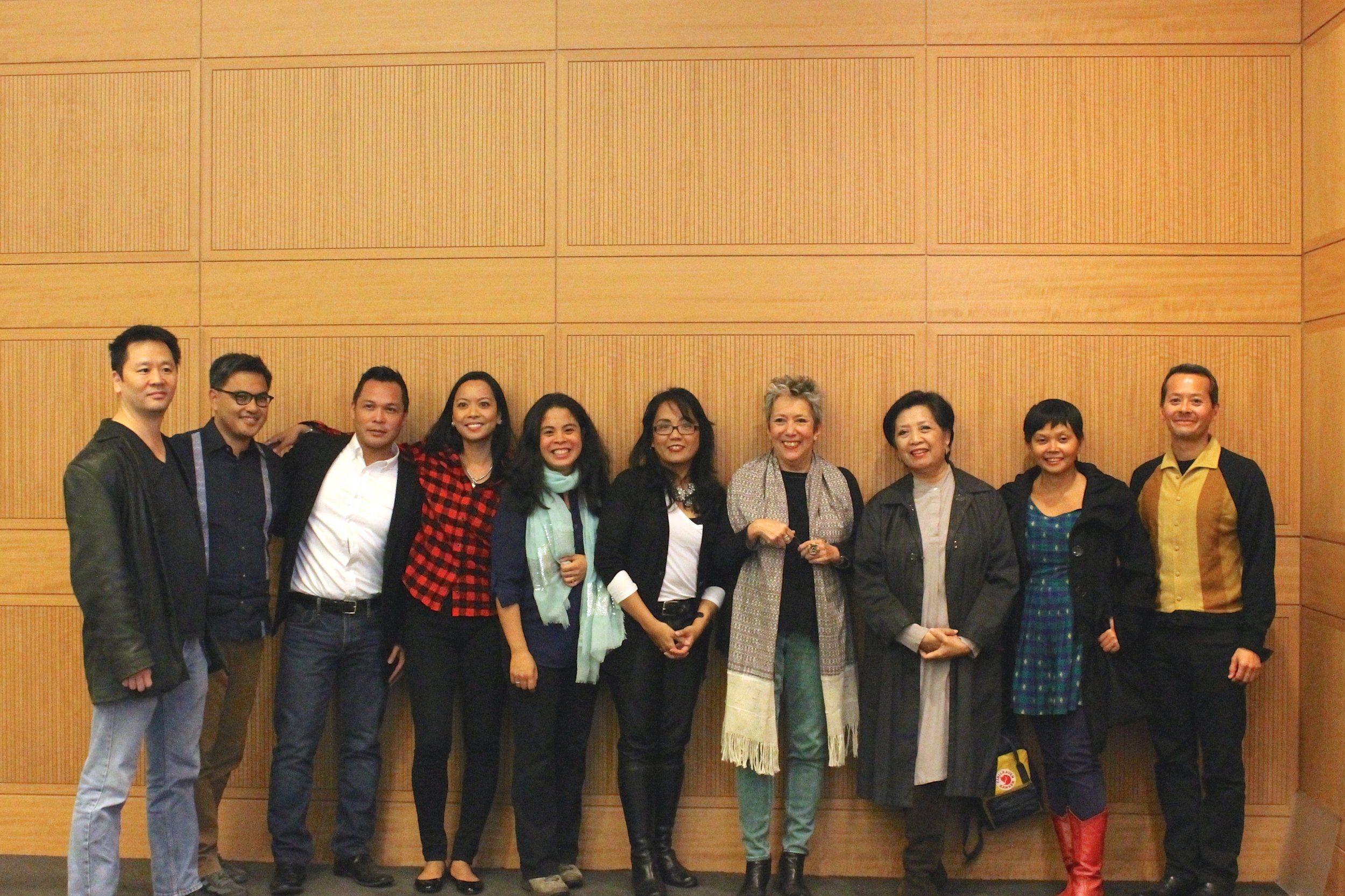
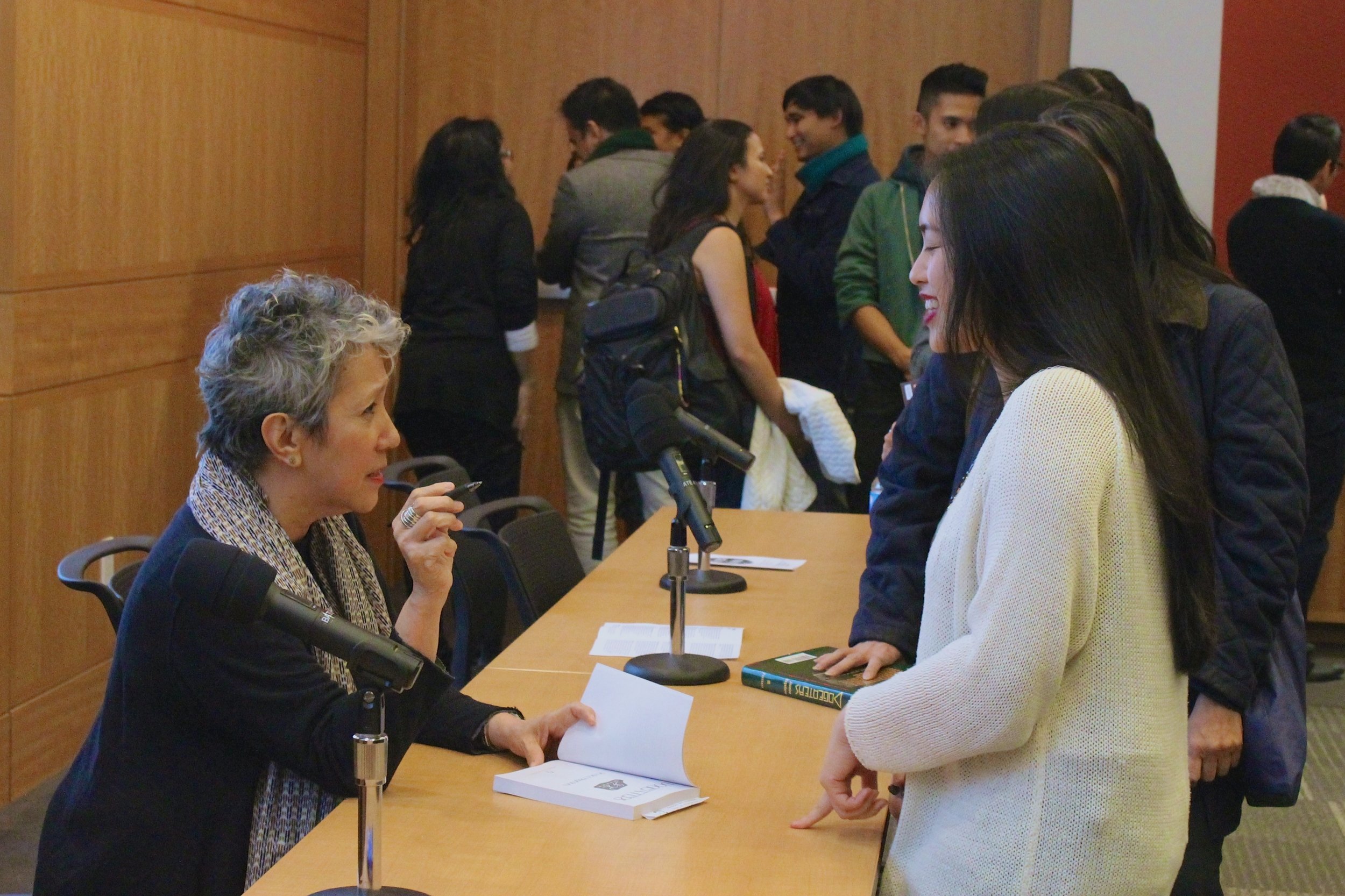
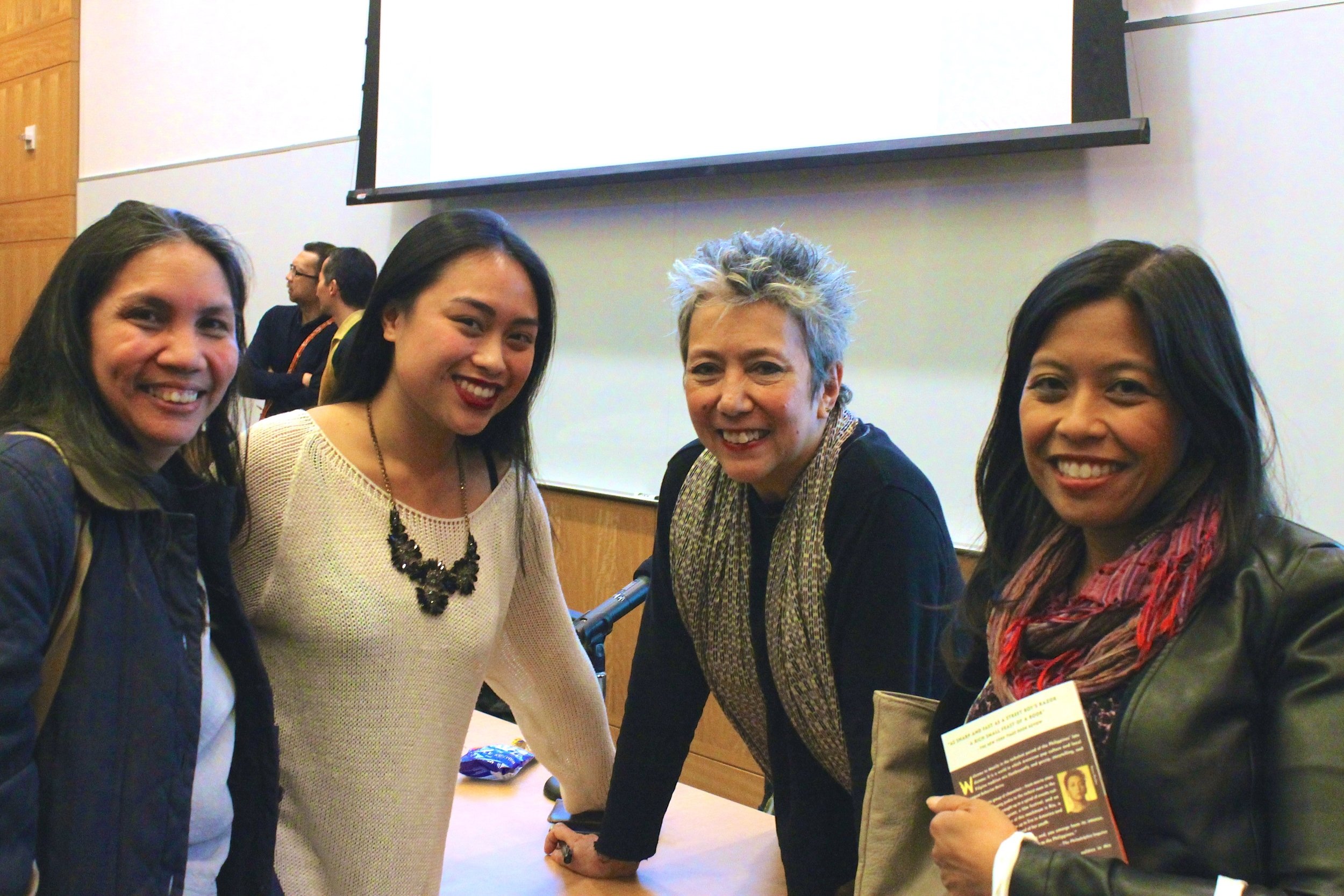
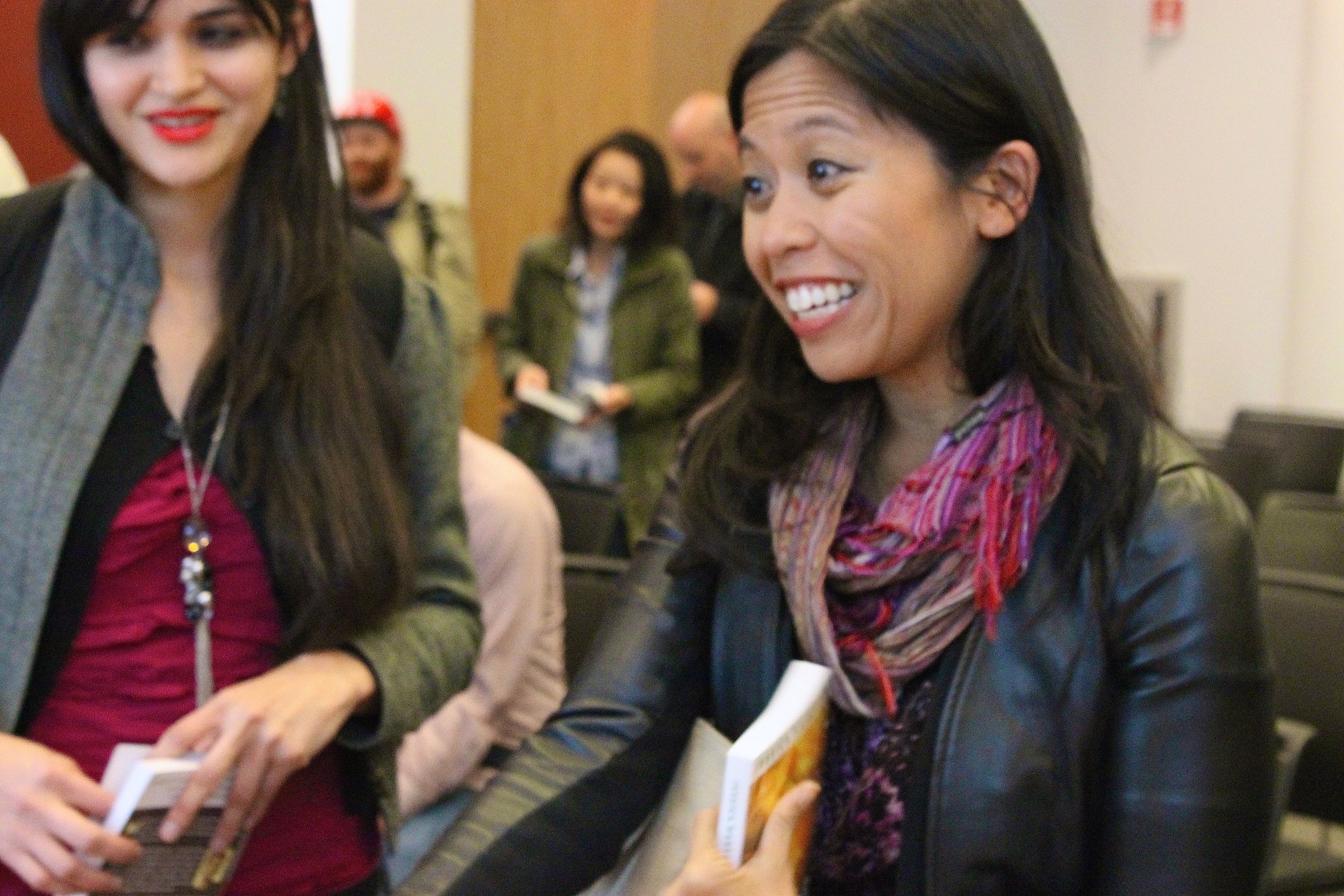
On Thursday, October 15, writers, academics, students, and fans gathered to celebrate the 25th anniversary of Jessica Hagedorn's groundbreaking Filipino American novel, Dogeaters. Fordham Law School's Bateman Room was standing room only for the writers' and artists' roundtable moderated by playwright, novelist, and MacArthur Fellowship recipient, Han Ong.
The passionate panelists included Mia Alvar, Gina Apostol, Nerissa Balce, Mia Katigbak, Walter Mosley, Ralph Peña, Allan Punzalan Isaac, Jeffrey Santa Ana, and the author herself, Jessica Hagedorn.
Nerissa Balce, an associate professor of Asian American studies at SUNY Stony Brook, opened the roundtable discussion with a reading from the last chapter of Dogeaters, "Kundiman." In her discussion on the prayer-turned-curse, Balce noted, "This novel captures the very complex relationships people have with the Philippines." She quoted a line from "Kundiman" to reinforce her point: "Manila I was born here, Manila I will die here, tantum ergo sacramentum."
Ong asked panelists to recount their first experience with Dogeaters.
"At first I couldn't get through it," said Alan Punzalan Isaac, a chair of American Studies and associate professor of American Studies and English at Rutgers University. "But, then I realized I could read the book like poetry."
Mia Alvar, a fiction writer, also sought a piece of her identity the first time she picked up Dogeaters. "It's hard to overstate how absent my own face or the faces of my family were from the novels I was reading [as a young adult]." Assuming that Dogeaters would be a "warm and fuzzy book about [her] home country," Alvar admitted that she was "extremely unsettled and destabilized" by the experience of reading Dogeaters. "It was the first time I asked myself if books and art were around to make me feel comfortable."
Mia Katigbak described her first encounter with the novel as "a kind of surge of memories I didn't know I had anymore." Ralph Peña, a playwright, compared his first reading of Dogeaters to having an interior designer completely redesign the home in which he grew up. It gave him the impression that he too could be an artist in the United States: "It was life affirming."
Balce hailed Dogeaters as the type of novel she had been waiting for in her study of Asian American culture, saying, "It was a book I could claim. Asian American literature doesn't always have to be about the American experience. Living through the trauma of being Filipino: that's what I want to read."
Praise for Dogeaters continued as Ong asked the panelists to locate the novel in conversations in literature.
Acclaimed American writer, Walter Mosley placed Dogeaters in the literary tradition of Nikolai Gogol's Dead Souls, Fyodor Dostoyevsky's The Idiot, and the works of Gabriel García Márquez.
"[Dogeaters] is not limited by culture, or by race, or by gender. You can understand it in China. You can understand it in Russia. You can understand it in Haight-Ashbury," said Mosley.
Isaac elaborated on the universality of Dogeaters, quoting a former student: "The brokenness of the novel makes sense if you know what it's like to be colonized." The panelists nodded in agreement.
Unsurprisingly, one of the highlights of the event came when Hagedorn herself joined in on the conversation. As the panelists discussed the categorization of Dogeaters as "the book that gave Filipino Americans a mirror," Hagedorn admitted that she had always found it "bizarre" that people referred to it as a Filipino American novel.
When asked what she would call it instead, Hagedorn replied, "A global novel."
Fordham is grateful to the Asian/Pacific/American Institute at New York University for their co-sponsorship of this event.